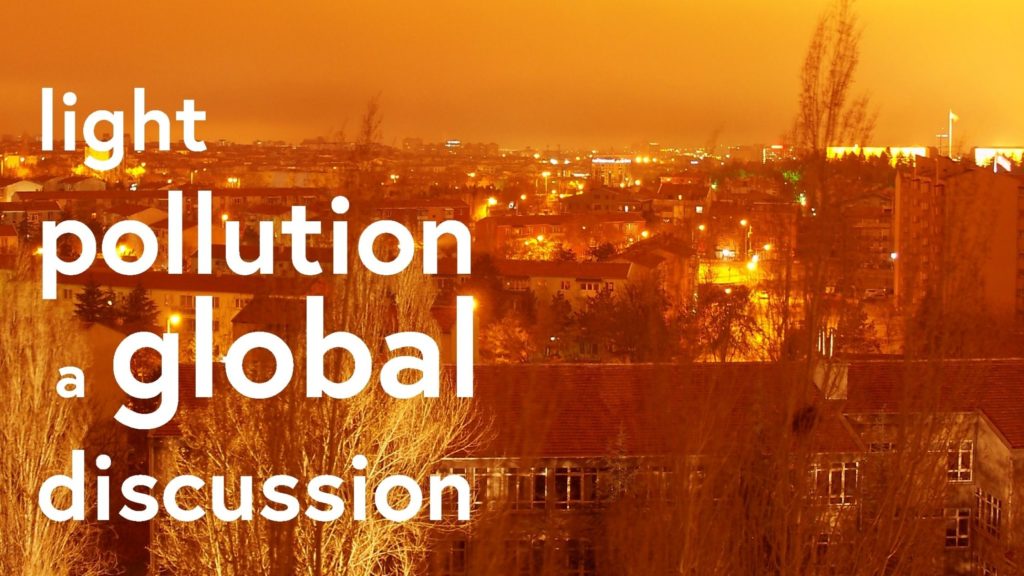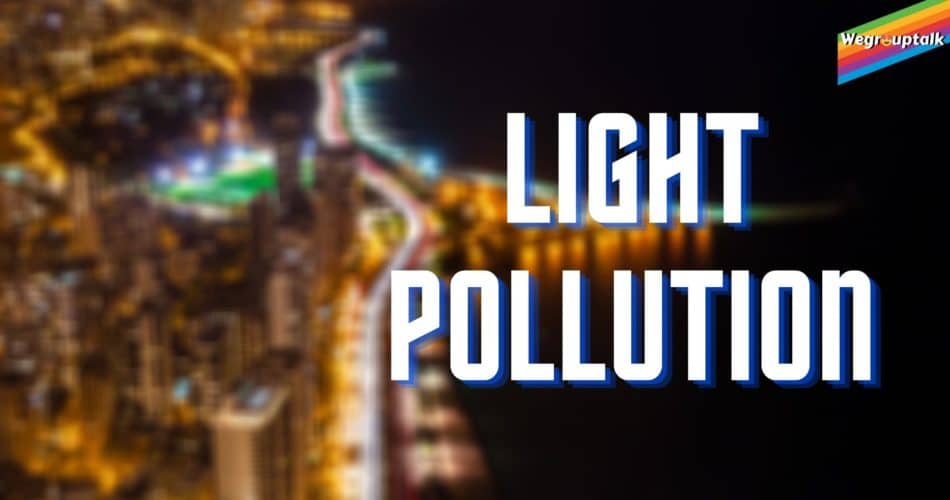Air pollution is quite a talk these days, isn’t it? Everyone just tries to blame each other for it, and nobody really wants to take responsibility and do something. Noise pollution too, all of us are irritated by the vast speakers playing songs in the middle of the night while we try to sleep on our comfy beds. Even space is overcrowding and is also coming out with space pollution.
If we see it briefly, all the types of pollution are introduced by humans’ inventions—for example, the most used material and the biggest problem, plastic. The automobile industry and the industries are the primary cause of air pollution. The oceans are filled with plastics which leads to the consumption of marine animals and indirectly to humans.
This has also led to the building of microplastics, which easily enter the human body. There have also been cases when rain is seen to be containing microplastics. But can light be a pollutant too?
Can use excess lights just to keep the place a bit brighter lead to pollution?
I guess yes, but the only thing is nobody is really talking about it. Everyone is talking about every other kind of pollution, but nobody is really bothered by the excessive use of light. But why? Maybe because what we have been thinking is to bring the night somehow, down. Somehow we were running away from the night; we were sleeping off our nights from the beginning of our civilisation.
Like the animal, we too used to disappear with the dawn, but this modern world wants to stay awake at night and work entire nights. Wants to travel any time it wishes to. So I think this is what has kept us going on a steady path of increasing light pollution.
Why am I calling excessive light, light pollution?
The primary term light pollution refers to the disintegration of the night sky by light, or we can say that the corruption of darkness by light. It is the presence of anthropogenic lights in the atmosphere that mainly contribute to pollution. It is primarily a side effect of the industrial revolution or the process of advancement of humans. Yeah, you heard it right, it’s for real, and please don’t freak out when you go further reading the article.
Okay, so one quick questions: do you ever wonder sitting on your apartment’s terrace in some city why you can’t see the stars anymore? Well, it’s because of your town and the industries surrounding it. They think using a lot of electric bulbs will give them some supervision and they would be able to see things from a km apart when this is never the case.
Almost all the industries I’ve come across don’t even correctly use lights. They just put lights that light the sector and the area in a radius of at least half a km is perfectly lit.
Do you know what countries or the parts of the world suffer from it the most?
Yes, you guessed it right, it’s the most developed countries or cities of the world. Some of them include North America, Europe, Japan, major cities in the middle east. The light pollution started when industrialisation came into play, but when do you think it was recognised first? In the 1950s, light pollution came into limelight, but I guess nobody gives a little bit of love to darkness else I might not have been writing this article. In the year 1980, the International Dark-Sky Association was founded.

Why does it happen?
The primary cause of light pollution is the advent of electricity. Although electricity is the most essential commodity for the entire world, and if it wouldn’t be a gift of electricity, then you might not have been reading this in the first place. It is often observed that people are careless and use excessive lights to enlighten areas that do not need such brightness.
With the advent of electricity, there was introduced the 24 hour culture. Humans are becoming more accustomed to restaurants, entertainment, bars, transport networks, and all-time go facilities.
One of the significant reasons for all the problems we face in our modernised world is population. Over time people have moved to bigger cities in search of more work and happy life, which has led to an increase in the population density of cities.
Hence the more the number of people in a particular town, the more they will brighten up the place during nights and the more they create the pollution. It leads to the usage of brighter bulbs which produces light which is quite excessive for us, and ever wondered why we use them? It is merely because we are accustomed to over-illumination. It’s not just about light pollution all the cities are a significant source of pollution of all kind.

Effect on us? Does it only affect us?
It is scientifically believed that artificial light can be very torturous for the human body rhythms. The artificial lights, or the different types of light sources, we use to wreak havoc on the circadian rhythm, a natural twenty four hour clock inside our body, helps us keep on track naturally. If this process is harmed in any sense, then the hormone melatonin production is reduced, which leads to sleep deprivation, stress, anxiety, headaches, etc.
Many modern technological types of research show that melatonin deficiency might be a cause of cancer. The current investigations about artificial light on the human body have also pushed the American Medical Association(AMA) to control or reduce light pollution and carry forward more research in the same field.

These adverse effects of light pollution are not limited to humans. Animals and birds also greatly impact them, such as their migration patterns are disturbed, habitat formation, and wake-sleep habits. Due to light pollution, many migratory birds and animal such as sea turtles get confused in finding their directions as they are guided by moonlight.
Once these creatures lose their path, that ultimately leads to a different destination and which is their ultimate death, the light sources not only produce light but the heat also, so when small insects are drawn to the light source they get in contact with the light source, which is hot and meet their death.
A couple of studies on animals
A recent study of blackbirds in Germany shows that the city’s excessive light leads to birds to have come active earlier in the morning than the birds in the neighbouring areas. This leads to their waking and singing sooner as much by five hours.
Another study showed how aquatic animals respond to massive light sources emerged underwater. It was observed that animals such as the sea bristle and sea squirt made their homes near the lighted panels. This indicated that the lights from passing ships and the oil rigs might be disturbing the ecosystem of the sea.
The NPS Night skies team has been monitoring the night sky in national parks worldwide, and nearly every park showed light pollution. More than 99 per cent of Americans and Europeans live under a sky glow. It sounds pretty, but sky glow due to human activities is one of the most vital light pollution forms.
Do we need our dark sky? Hell yeah, who doesn’t love stars.
There are people among us who don’t even get to see stars for years, and there is a possibility that the coming generation won’t even be able to see them for decades. All of this is due to light pollution, which leads to various phenomenons and then leads to the fading of stars. Most of the younger generation or the Gez Z people adore darkness and love to enjoy it. Sitting on the terrace in the middle of the night, many of us want to gaze the stars for hours, but what happens when light pollution comes in is everything is gone, all the stars and all the gazing.
The cities have really forgotten the essence of nights; they just keep running and never stop. We need to come forward and fight for what is rightfully ours. Once race to see things in the dark began, humans have been running it since and never really stopped.

There is a city in the USA; I won’t name that city because it is one of us humans’ most advanced cities. The town is so heavily using lights such that the city’s lights can be seen from a distance of at least 40 miles. The sky doesn’t remain black during the night. The stars are a distant dream even the moon is faded in the gleam of the city.
The only thing we can do is stop wasting!
The care for nature and the spirit to fight against the harm, humans are causing heart has paced up several times in recent years. The moment kids joined protests, everything changed. Some ten-year-olds are on streets and fighting for their right to life because the people responsible for the destruction of ou environment don’t see anything else above filling their own pockets. Things are changing; people are coming forward. Fights to bring the night sky back has paced up, and many people are fighting to get around the night sky.
The most important thing to do is stop wasting energy, energy as in light, heat, and more specifically, electricity. At the present moment, we don’t have vast renewable energy sources, which leads us to turn to authorities that produce harmful emissions in the environment. The production of electricity isn’t affordable, but its transportation consumes half of the electricity produced. So using an excessive amount of it to light the cities causes not only light pollution but also air pollution, and almost all other types of breakdowns are related to it.
What are we doing?

- We can change the light bulbs in the street lights and put them at proper distances to better use light. It is widely seen street lights are downward faced, and it is a good thing since it prevents it from scattering in the atmosphere, and it affects light pollution is negligible.
- The excess usage of light leads to excessive use of electricity, leading to excessive air pollution. And the extreme air pollution worsens light pollution by cause a fiery glow in the sky above by the lit city below.
- Initiatives such as dark hours must be taken, every week or so, which can significantly reduce light pollution in the atmosphere.
I believe light pollution is a significant threat to us, and it is a part of the chain that keeps on stretching. So I want everyone to take a moment. Sit back and think, what really do you want, or why don’t you do something about it?
Follow us on FACEBOOK, INSTAGRAM and TWITTER to stay connected~!!
Also Read- 5 Worst Air Polluted Countries and Measures they are taking to tackle




